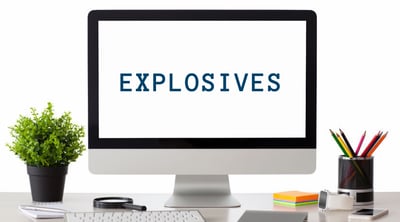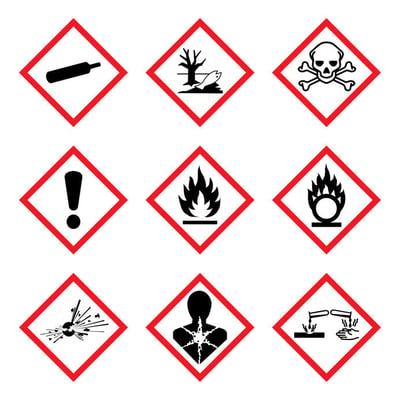Single Window Initiative (SWI) - Survival Guide for importing explosives
The new SWI landscape
The Single Window Initiative means several changes for importers:
- how you need to submit documentation is in flux;
- when that documentation is needed has changed; and
- which documentation is required is also shifting.
 Our goal is to help you understand what is expected for the new “how, when, and what” of SWI requirements relating to the items you ship. These updates guide importers through specific commodities or categories of commodities, and the Participating Government Agencies (PGAs) that are affected.
Our goal is to help you understand what is expected for the new “how, when, and what” of SWI requirements relating to the items you ship. These updates guide importers through specific commodities or categories of commodities, and the Participating Government Agencies (PGAs) that are affected.
How, when, and what
- Single Window Initiative requires all import documentation to be prepared and submitted before the shipment reaches customs.
- SWI is a new way of submitting documentation. All docs will be submitted using the Integrated Import Declaration (IID). Some of the requirements for how you submit are changing. For example: some documents that needed to be faxed now require an uploaded electronic image or just the document number.
- There may be changes to which documents are required under SWI.
- The launch date of SWI is still unknown, but it’s time to get proactive and adjust your workflow to ensure paperwork is ready before you ship.
Why importers need to know
Under the new SWI, it’s important that you understand which Participating Government Agencies (PGAs) are regulating your products. Some products are regulated by multiple PGAs, and the PGAs regulating your products may have changed under SWI. Additionally, each PGA and the CBSA can issue penalties for incorrect and missing documents. Understanding what information and documentation is needed for clearance will make the clearance process into Canada smoother and more efficient.
Importing explosives under SWI
This month, we’ll guide you through importing explosives under the new Single Window Initiative, which is regulated by:
Natural Resources Canada (NRCan) - Explosives Regulatory Division (ERD)
Before importing any explosives into Canada, please review the Explosives Act and the regulatory website for admissibility.
Please note: firearms are not included in this program. At this time, firearms cannot be imported using SWI.
Requirements under SWI
The Natural Resources Canada Explosives program has not changed any of the requirements moving into SWI. They have changed the way these requirements (data elements) are reported.
Before SWI, a broker could not submit any product regulated by Natural Resources Canada Explosives electronically. Paper entries were manually submitted to the port of crossing. Explosives permits were presented along with the documentation from the vendor to CBSA at the border.
Under SWI, an imaged copy of the explosives permit is transmitted electronically, along with data elements required under the NRCan Explosives program. If CBSA is satisfied, the shipment will be released from customs.
Natural Resources Canada requirements for explosives
Please note: most of the required information below can be found in the data fields on the explosive permit.
1. Party information
All shipments require specific party information, including name, address and, in some instances, contact information [What does contact info mean...phone number?].
2. Permit applicant
The name of the person who obtained the Explosives importation permit.
3. Registered party
The name of the company on the permit that’s registered to import the goods.
4. Documents
- Annual explosives permit
- Single use explosives permit
- Single use explosives permit for tours, events, or international competition
5. Document reference
- Permit number
6. Data elements
- Authorized product identifier assigned by NRCan
- Authorized product name
- United Nations dangerous good code
- Net explosives quantity/gross kilograms
- Unit of measure (number of cartridges, caps, igniters, etc.)
To make the importing process easier at the border crossing, importers and vendors should ensure that their invoice indicates the manufacturer of the item with each part number for easy cross-referencing to an explosives permit. Importers should also make sure that the items ordered and shipped are actually accounted for on their most recent explosives permit, and that the permit has been updated with CBSA.
For SWI, being proactive is your best strategy—gather all your information and documentation as far in advance as possible. Importers who know the requirements for the products they’re importing, and understand the new processes under SWI, will have a much smoother import experience.
Work with an expert
As you adjust to the new requirements and workflow of the Single Window Initiative, we're here to help. Our customs team is ready to help you understand the SWI and its new requirements for your commodities—contact us today!
SWI. It's what we do.

